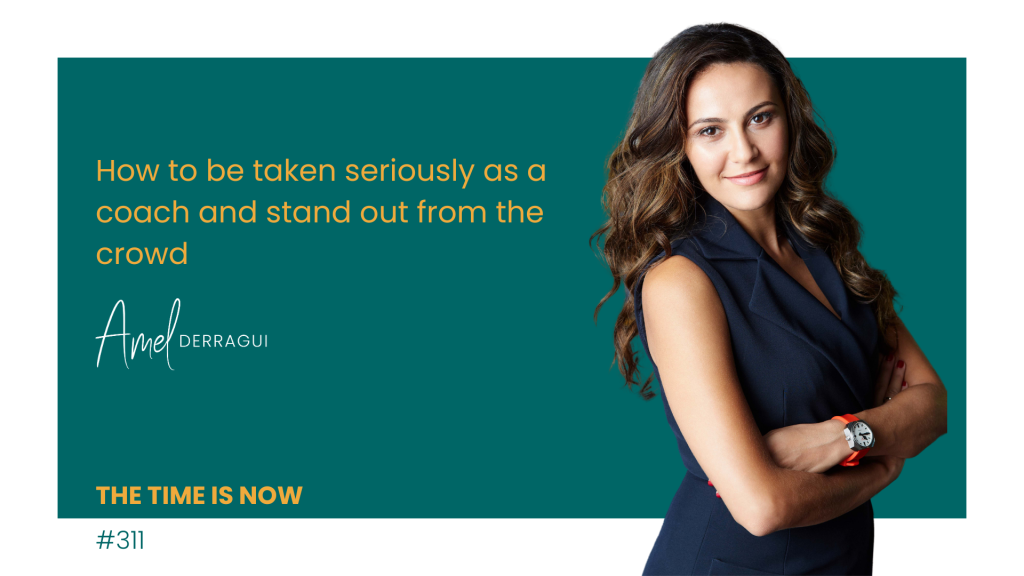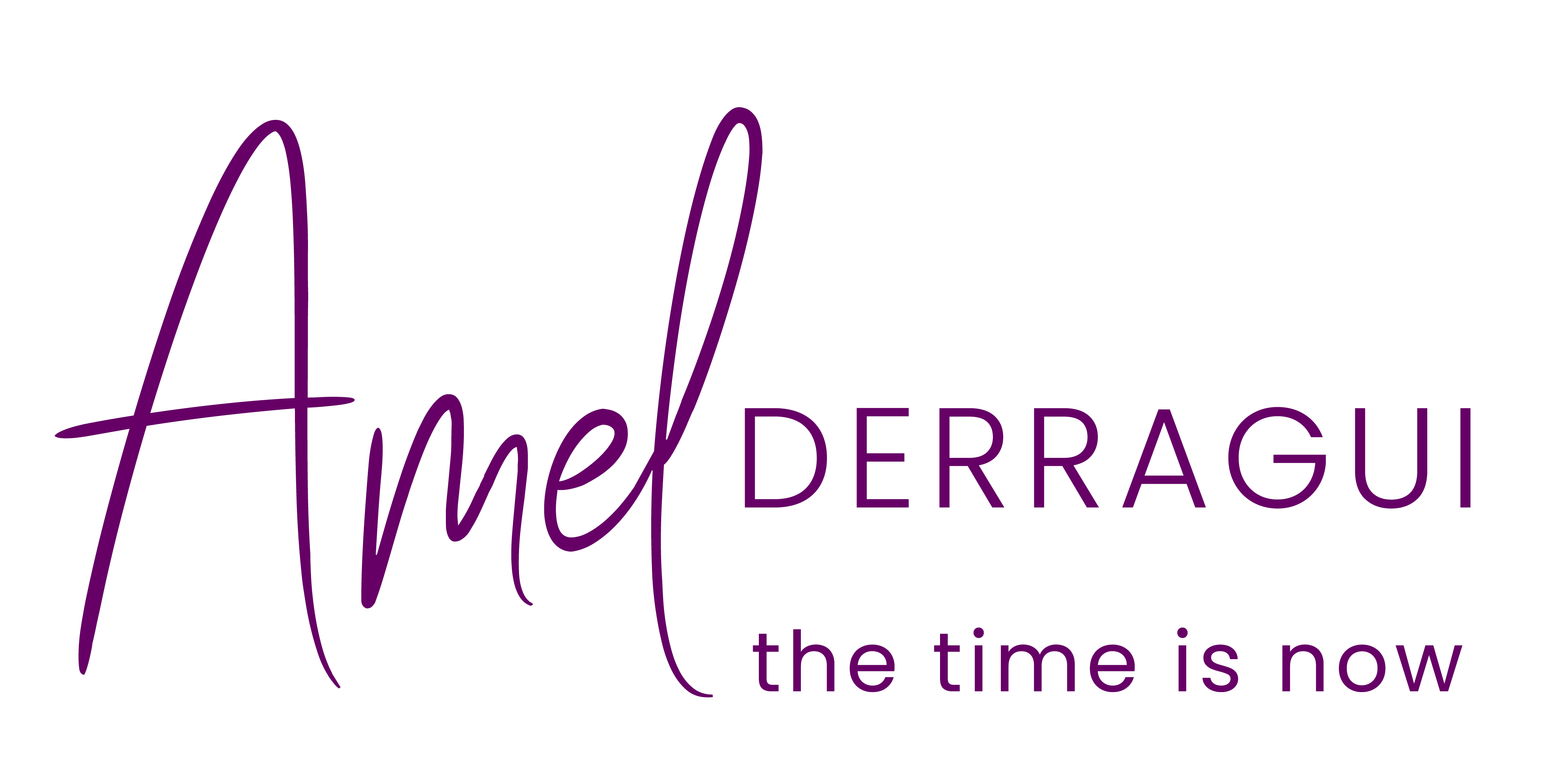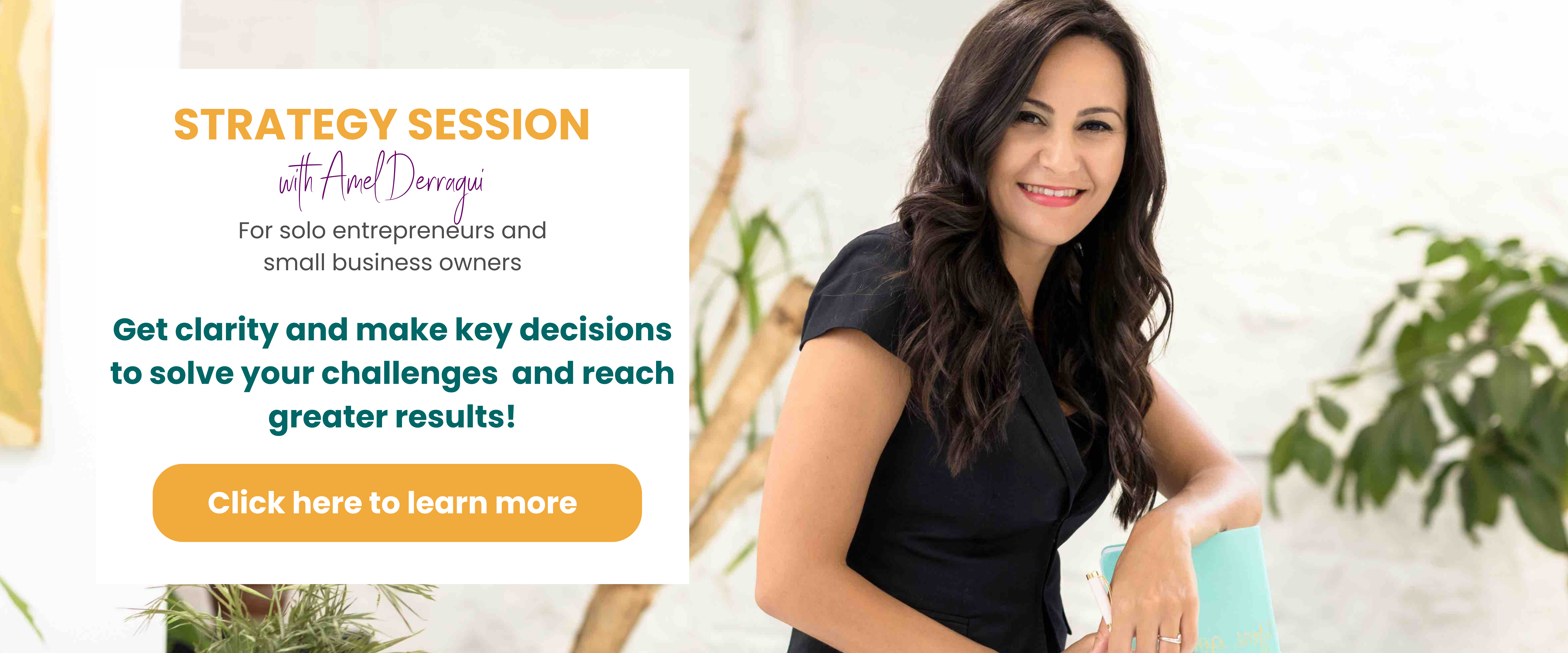How to be taken seriously as a coach and stand out from the crowd

Listen on your podcast app:
Written Summary Of This Episode:
- Click here to find the blog article (Find full transcript below)
Resources Of This Episode:
- Do you want to position yourself as the go-to expert in your field and generate real revenue with your business? Schedule a 90-min strategy session
If you are a coach or a consultant, it is time to address the big elephant in the room:
When you tell people what you do, do you often feel they are checking out of the conversation or, worse, secretly rolling their eyes?
It is painful to admit but unfortunately all too common. There are many reasons for this reaction, but the good news is that you can change it!
Coaching is a tool, not a business.
In this episode, I share with you how to stand out from the crowd, change people’s perception of your work, and consistently attract your ideal clients with your coaching or consulting business.
What you will learn:
- Why coaches and consultants are often not taken seriously and struggle to make real money with their business.
- What you should do differently to stand out from the crowd and sell your services effectively.
- Real-life examples from my clients who managed to position themselves as the go-to expert in their field and turn those rolling eyes into sparkling eyes, eager to know more.
Enjoyed this episode? Please leave a review
Please leave a review or a comment to help me reach more people who need to hear this. Choose your favorite podcast app:
Transcript
Categories of people that we don't take seriously. Welcome to the time is now the. Podcast show designed to take action and stay on top of your game to make a bigger impact with your business while creating more freedom and purpose in your life. This is your host Amel Derragui. I'm here to help you get the clarity and the action plan you need to position yourself as the go-to expert.
time to create more growth, [:If you have been a coach or a consultant for a while, or even recently, you might have noticed how some people sometimes roll their eyes when they hear about coaches or consultants. There's a reason for that, and I want to tackle that taboo because I do think that although some people are getting judgemental quite fast about this industry, that I think is pretty powerful, there is a reason for this to happen.
n you tell them what you do. [:'cause I think a lot of the tips here will also help you make sure that people really understand right away what you do, how they can recommend you, but also get excited about what you do and can immediately see the impact that you can provide with your services. As I said before, there is a reason why coaches are not being taken seriously.
And having been a consultant myself for many, many years, I've also seen how consultants and other areas like lawyers are very often not taken seriously in the corporate world or the entrepreneurial world, uh, for. Because there's many of them, first of all, but also, and specifically in the coaching industry, there has
coaching that is due to some [:But at some point, so good that they might have become a bit of a caricature of themselves. And fortunately, that has affected the image of coaching and that has also affected the understanding of what coaching is really about. The other thing is that coaching has become more and more accessible to a lot of people.
There are many, many, many coaches out there, and once you meet your 10th coach, it is normal that at some point you start rolling your eyes like another one. Right? So I really understand why people react that way, just. As when we meet with our 10th consultant in a conference, or our 10th lawyer or financial advisor at some point, having too many of those people leads to at some point really needing to step out of this crowd.
e taken seriously. The other [:I don't think it's a big deal to do coaching on the side, but I think it is important to be committed to our coaching practice as a business and not see ourself just as a coach or a consultant, but rather as a business owner. And that mental shift will also make a big difference for you to be taken seriously by your ideal clients in any networking place or event place, or even on media.
aches are completely in love [:And talk about is the coaching tool, and that is not what people are interested in. The coaching tool is magical. The coaching methodologies you might have learned might be amazing because you've experienced the transformation yourself, but that is not. Gonna be the hook for people to be interested. And I often tell my clients, it is so important that you speak the language of your ideal clients and be where they are in their head and their journey.
Instead of trying to convince them about your tool, focus on making them really understand what is the transformation you will provide them. So for you to be
able to stand out from this crowd and to be taken seriously, and most importantly, to get the attention of your ideal client, you should not sell your coaching.
However, what you need to [:You do not sell the coaching. You sell the transformation. And for that, you need to know what is the problem that you're solving for your clients, and who are those specific types of clients. If you try to resonate with everybody as a coach, you doomed. I'm sorry to tell you that, but you are doomed.
It's so hard to make coaches [:As a coach, we don't give advice. We are here to help people find their own answers. Yes, I get it. However, as a coach, if you want to sell your services effectively and regularly and consistently, and build real revenue, you need to be able to promise something to your clients. What is it that you can promise them to deliver to them as a coach?
do magic for so many people. [:It's gonna be very hard for people to really understand what value you can provide them. That's not specific enough. So one of the things I can assure you about is that when you pick a very specific niche, number one, that's the fastest way for you to become the go-to expert. I can give you my example.
When I started my business eight years ago, my very, very small niche were spouses of expat who travel every two to three years. So it just took me less than a year to become the expert in that field because it was so, so specific. However. It did not stop me from attracting people beyond that niche over the time.
me. So it'll be the same for [:I, for instance, work with people who are completely outside of my niche very regularly. For instance, I work often with organizations and businesses and NGOs to help them with their marketing strategies because. It just happens that I love to do it, but it's not where I put my whole focus in terms of marketing, because if I did that on top of my current niche, I would just get spread so thin and struggle to be consistent.
And consistency is the key here. I. For all of us, the key to success is consistency. You've heard me say that very often, and in order for you to be consistent without burning out, which is also important, you need to pick a lane. Pick a lane for your marketing strategy, but don't be afraid because even if you pick that lane, you will still probably get other clients outside their niche.
It's not gonna stop you from [:You need to have very specific positioning, very specific messaging, and very specific marketing and visibility strategies to attract every type of client. So every time that I have a coach who comes to work with me, I make sure that this is the first thing we defined. What are they? The go-to expert of.
ally good marketing strategy [:The first example is a coach who is an expat, an intercultural coach who came to me to build a strategy to sell her services as an intercultural and expat coach. And of course I was like, no, we're not gonna do that. I. We are going to dive into your journey and figure out what is that special thing you do.
coach, but as a mother, as a [:So those tools have actually been so crucial for her journey, but also for the client she worked with. And when I realized that, I was like, that is it. That is your positioning. Split family assignment expert. We didn't even say coach. We actually left the coaching tool on the side because it turns out that coaching was not the only tool she had under her belt to create the transformation for her clients.
responsibility of growing a [:And that has affected many companies, and that is why there is a whole now field of talking about family assignment, where she even decided to run a huge research around this topic and get a thesis research based on this topic. That's also helping her to position herself in this field even more as an expert on top of having actually already wrote a book about it.
So you see how we went from expat and intercultural coach to split family assignment expert. Here's a second client who came to me as an intercultural coach as well, and she wanted to position herself as a coach in intercultural uh, training, but also. When we dived into her journey, we realized she's also a great English teacher, and she is originally from Austria, lived in the US for many years, has been in a cross-cultural relationship, but also her husband has been working between the US and France, and all of that gave her so much experience that.
We turned her [:To helping them speak better business English, but also understand the American business culture and prepare their meetings effectively so that they can persuade their partners and clients on the goals that they have to reach. So we went from intercultural codes to expert in helping Austrian German businesses do business in the US and prepare their meetings to reach their goals.
. And here's another example [:So very quickly in our first call, we realized that. What she's really passionate about is more than that. She was afraid that if she focuses on that, she will let go of her other thing that she loves, which is architecture and the technical field. 'cause she actually is an architect and still works as an architect.
She just fell in love with coaching and wanted to really. Bring that to other people, and one thing led to the other. As we dial into her expertise into her journey, we realized that on top of her coaching and helping people belong, she also has some really great expertise around mediation and conflict on the professional level and a personal level.
n teams in technical fields. [:But selling belonging is not clear and does not help people really know what this is about. But when suddenly you say, I help teams get along and resolve their conflicts to be more effective and reach their goals much faster. That makes a huge difference. And right now the next step for her is to run the interviews and the surveys to confirm that this is indeed what the client's needs.
e to me to sell her services [:Again, I went through that process with that client to really understand what is that unique zone of genius that we can turn into a very effective positioning. And that is when I dived into her story and realized that she was still the general manager of an electric company, and what led her to coaching was to have some major issues of engagement in her company.
People were leaving the company and she was struggling to make them really engaged in their tasks and their jobs, which led her to develop many tools, including coaching, and that led her to three years later be able to help grow the revenue of the company by a hundred percent, and then number of employees by 50%.
mployee retention. She helps [:Her name is Arula Drakovich and she was so kind to respond to my request in very short notice to ask her while I was recording this episode to send me a quick audio and share with me what results she experienced by positioning herself this way. I see two main challenges with being a coach, let's say just a coach.
The first challenge is that for many, many, many people, coaching means anything and everything. There's a sports coach, a diet coach, a business coach, a leadership coach. So they don't really know what it means and what it refers to, and they don't really trust it. And depending on top of it, on the countries, there are countries where coaching is totally part of the business culture or the culture in general.
a coach, this means you have [:Code of ethics, but you know, anybody can claim himself a coach. So there's a whole issue of sort of trusting around the profession of coaching. So what has positioning really helped me, me becoming an expert in employee retention. This has caught the attention of a lot of people because this is the issue with which a lot of people are dealing today.
, make sure to really define [:If you're a consultant or anything else, make sure to do that as well. And if you struggle with it. Then take action. Stop dwelling on it. I am here to help you if you want my support. I do offer 90 minute strategy sessions where we can dive into your journey and figuring out what could that special niche be for you.
If you're interested to schedule the strategy session with me, go to the time is now biz slash three 11, and you'll find the link right there. I hope I'll have the chance to support you in your journey and making sure that you take your business seriously. No matter if you're a coach or any type of service provider, it is so important that you take your business.
to create real revenue is to [:An expert. However, I will be having another episode about that, so make sure to stay tuned. And in the meantime, I hope I'll meet you into this strategy session. This is your time to take action. This is your time to create more growth, alignment, and impact in your business.

